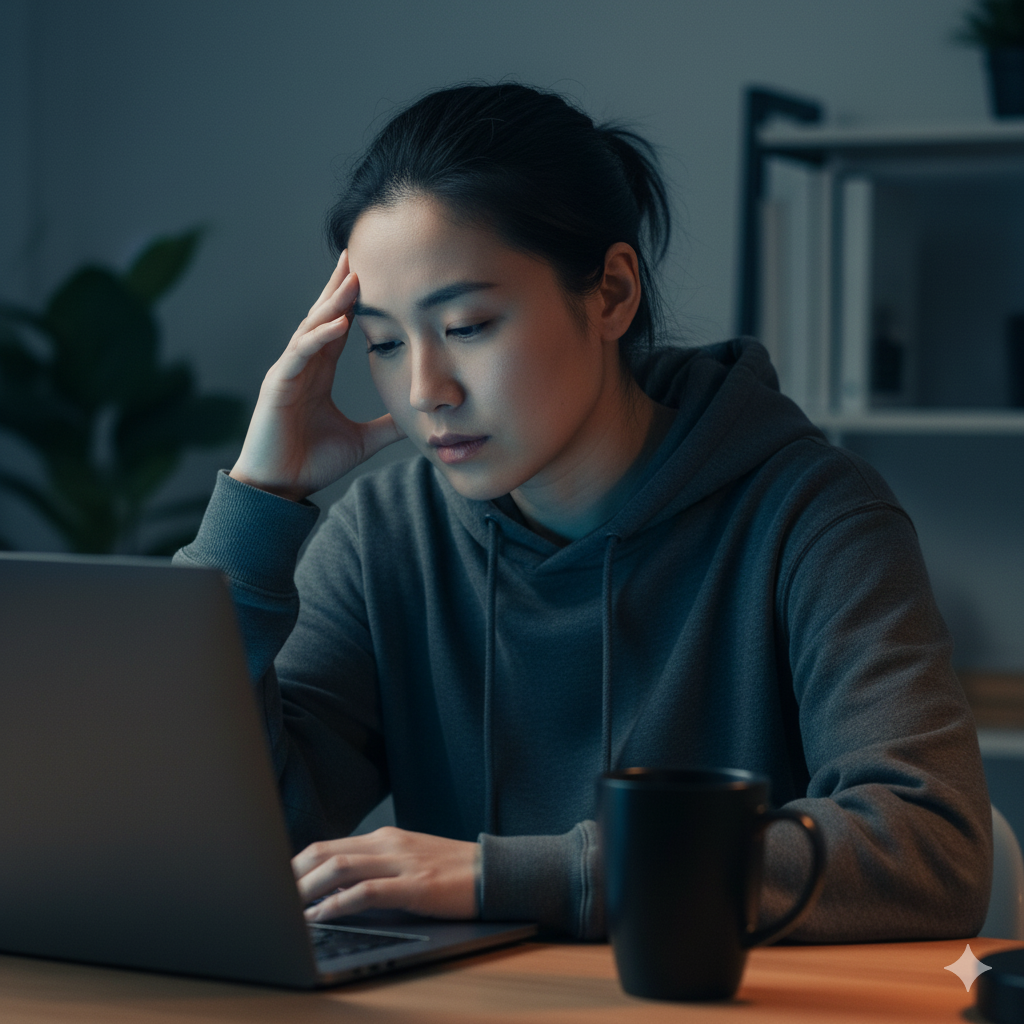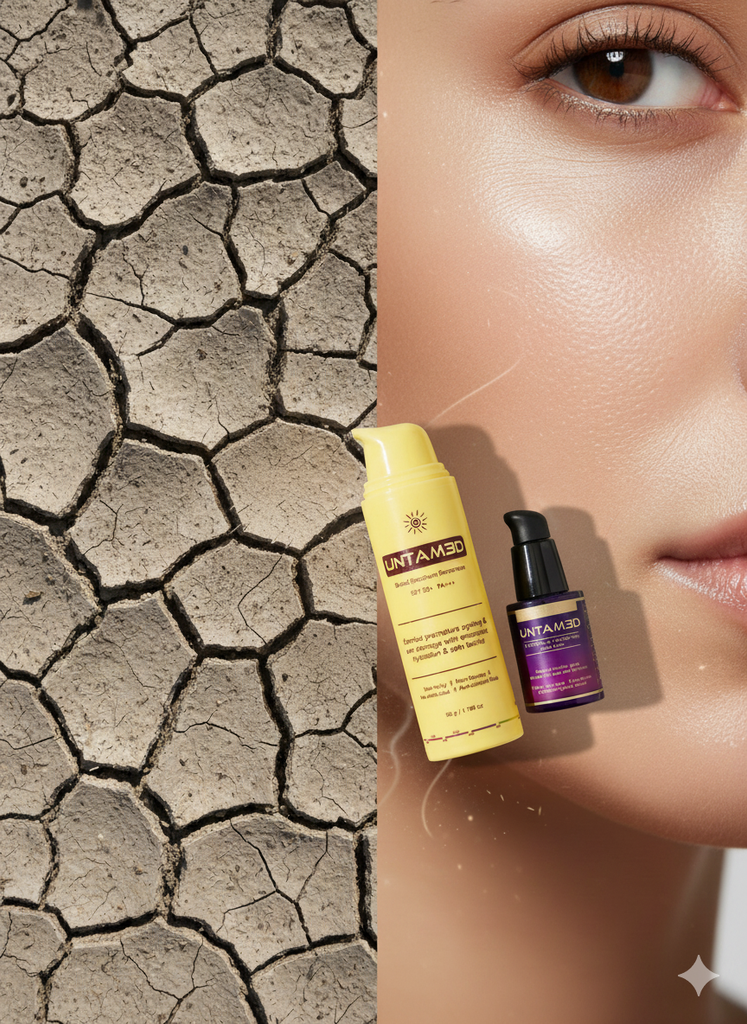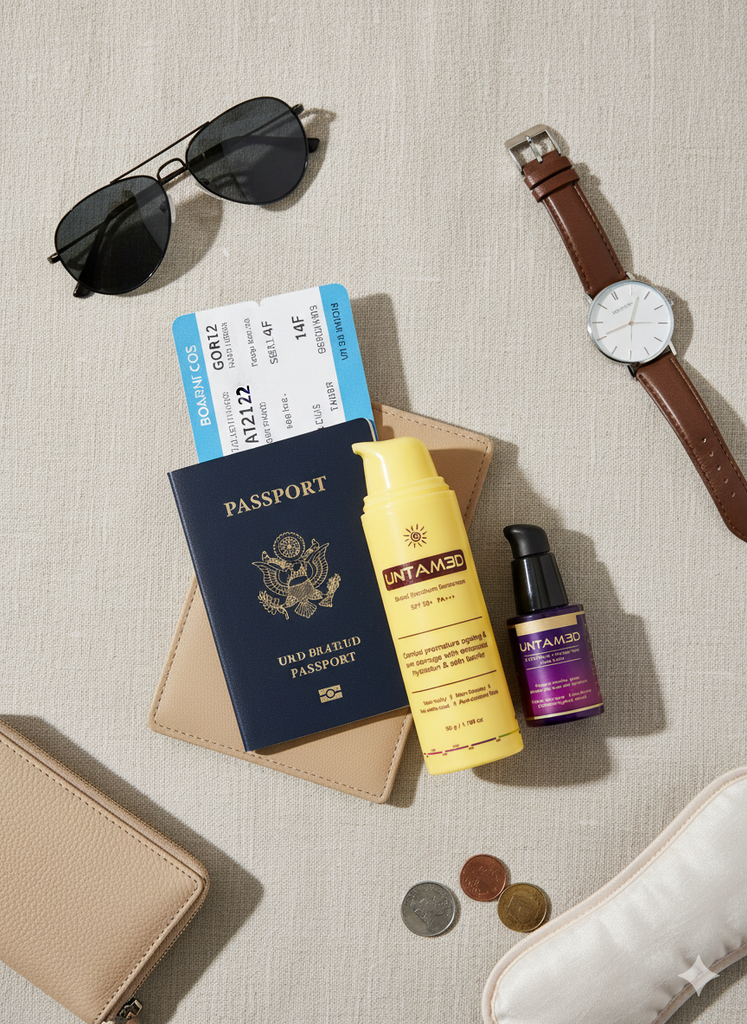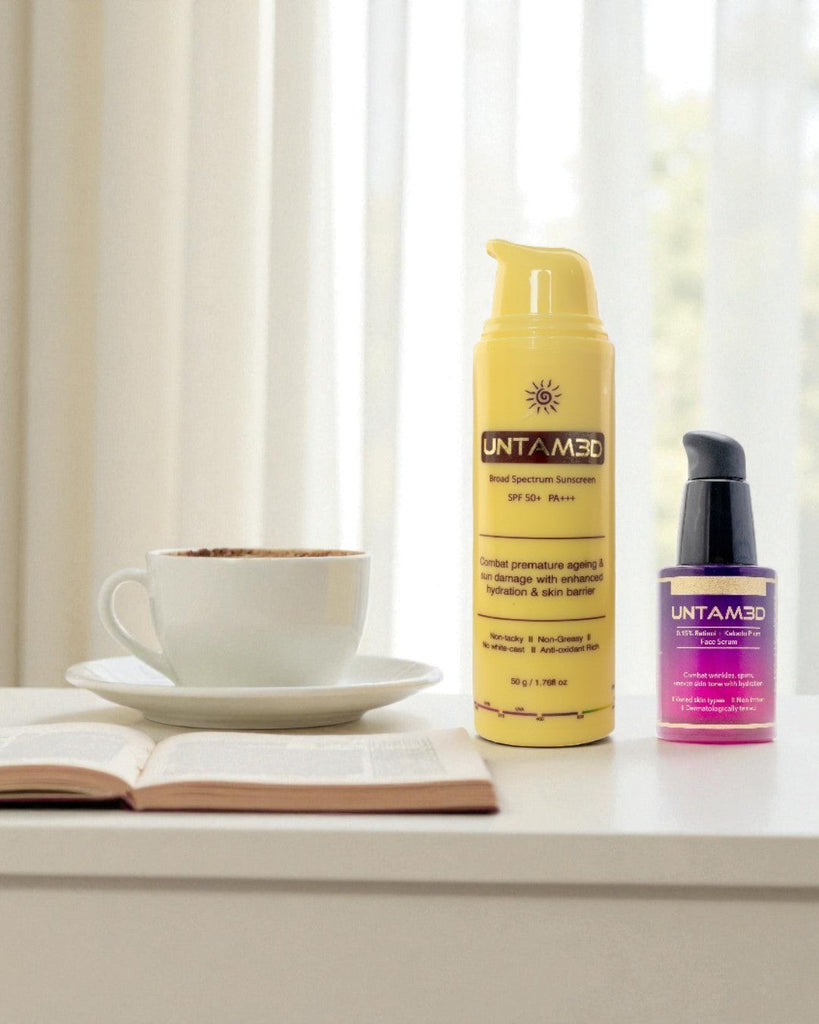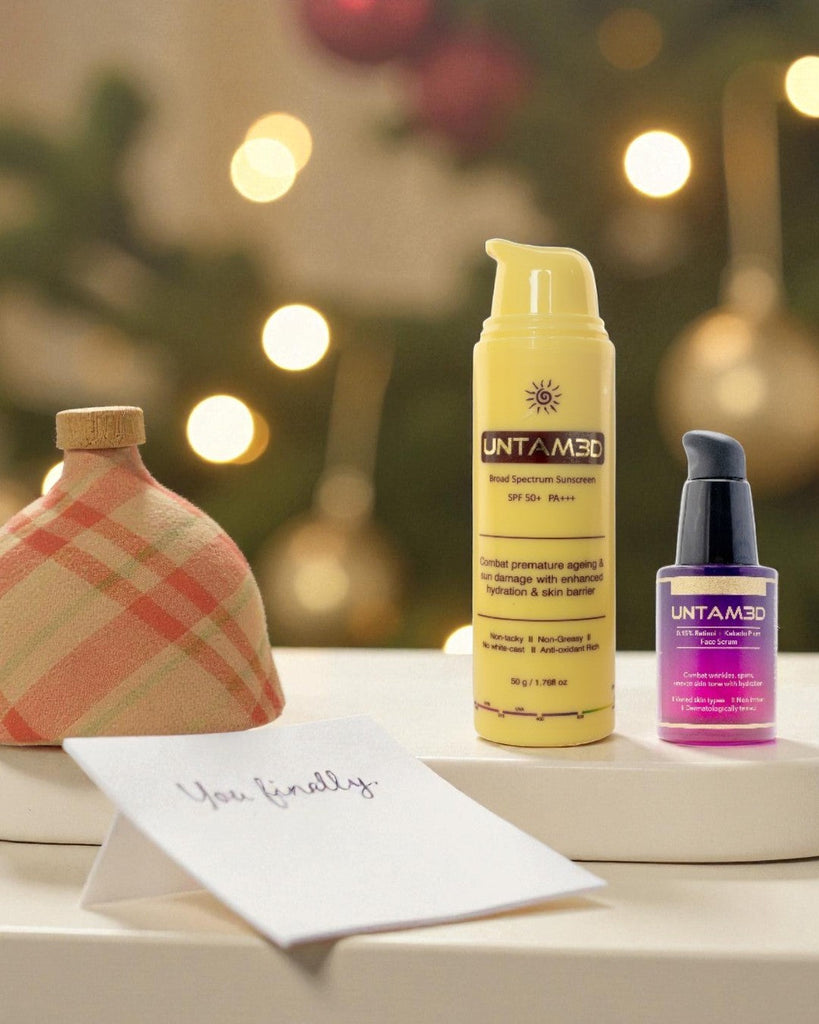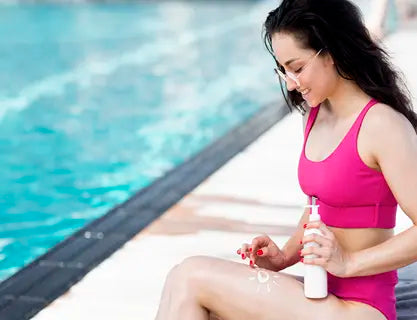
3 Reasons to Not Use Any Sunscreen ( let us demystify )

Of course, all skincare companies are faffing. Here are the top 3 reasons why some individuals think they should not use sunscreen:
1. Because sun rays don’t get inside the house
Essentially the belief is sunrays can't penetrate through the glass and the clouds right? Wrong. Unfortunately, the UVA rays are potent and strong enough to go through the clouds or the window glass to cause sun damage. Persistent exposure to the UVA rays will cause premature aging like wrinkles and elasticity.
Let's assume one has James Bond-grade window glass that protects from UVA rays too. Congratulations! But guess what bluelight is a ticking bomb, Bluelight that gets emitted from your computer screens and your mobile devices also leads to premature skin aging.
So, do you still think rays don't enter the house?
2. Because it's make-up
Applying anything to your Skin is called make-up. Well the age-old argument has been skincare never existed in yester years and still our ancestors had good skin then why do we need it now? Well yes, we agree and no times are not the same. What has changed
-
Weather conditions: More UV exposure (The ozone layer has depleted over time hence exposure to more harmful UV rays than before ), pollution, climatic shifts, etc.Look up Skin-Sync AI which can help you combat weather conditions
-
Lifestyle: Our lifestyle has changed from sleeping less, taking stress, and having unhealthy diets. And yes, all these factors play a very important role in your skin.
-
Evolution of science: With advancements in science we now have access to the best ingredients and formulas of this era which can help us overcome skin concerns in an easier manner
-
Product efficacy: Products in the market go through rigorous testing and safety standards to ensure that consumers have access to products that have traits like pH balance, skin barrier repair, clean ingredients, etc
3. Because it's all Gimmicky :
Well, what to select can be daunting, and you can feel everyone coming at you all at once. Here is a crash course on how to select your sunscreen
1. PA+++ rating - PA stands for Protection Grade of UVA rays and here is the classification
-
PA+: Gives 50-75% protection against UVA rays ( equivalent to 2-4 UVA-PF)
-
PA++: Gives 75-88% protection against UVA rays ( equivalent to 4-8 UVA-PF)
-
PA+++: Gives 88-94% protection against UVA rays ( equivalent to 8-16 UVA-PF)
-
PA++++: Gives 94% or higher protection against UVA rays ( equivalent to 16 or more UVA-PF)
A minimum of PA+++ would be great, to begin with, you can also select a higher
2. SPF - SPF on the other hand protects from UVB rays. Here is what the number stands for
-
6 to 15: Low protection
-
15 to 25: Medium Protection
-
30 - 50: High protection
-
50+: Very High protection
The number indicates duration but not directly. SPF 15 doesn't mean 15 minutes it means the duration of protection is 15 times, the minutes a person takes to get sunburned without sunscreen. For example, if once takes 5 minutes to get sunburnt without sunscreen then SPF 15 will protect 75 mins ( 15*5). However, these values are not applicable in ideal scenarios as sweating, sufficient application, swimming, and rubbing with a towel or clothes will decrease the protection duration.
In our case we recommend SPF50
3. Other ingredients :
-
Choose a sunscreen that can provide moisturising if you have dry skin but be careful to select a non-comedogenic sunscreen if there are acne problems.
-
As mentioned earlier protection from pollution is important hence select sunscreen that has antioxidants
How to Incorporate Sunscreen into Your Daily Routine
1. Choose a sunscreen basis the criteria we shared. Can evaluate UNTAM3D broad-spectrum sunscreen
2. Apply generously over your face and neck, Try to apply 15 minutes before going out in the sun to avoid sweating it out
3. Don’t want to push it. But, now that you know the math on exposure do you think you can reapply every two hours, especially when swimming or sweating? Because it will help
4. Make It an everyday habit whether sun or cloudy, whether indoors or outdoors
What are you protecting against if you do consider a broad-spectrum sunscreen?
1) UV Protection:
-
UVA rays age skin by degrading collagen and elastin
-
UVB can cause sunburn and cancer. This damage is prevented by daily broad-spectrum sunscreen.
2) Prevents Premature Ageing:
Most wrinkles, fine lines, and age spots are sun-induced. By inhibiting UVA, broad-spectrum sunscreen keeps skin young. Research shows regular sunscreen use reduces photoaging and maintains skin elasticity and tone.
3) Lowers Risk of Skin Cancer:
Long-term UV exposure causes most skin cancers. Broad-spectrum sunscreen blocks UV rays. The Skin Cancer Foundation says daily sunscreen use dramatically reduces melanoma and other skin cancer risks.
4) Protects Against Anti-Hyperpigmentation:
Solar exposure causes dark patches and uneven skin tone. Melanin-forming UV light is blocked by broad-spectrum sunscreen. Sunscreen is needed for melasma and PIH.
Conclusion
Daily broad-spectrum sunscreen use is one of the easiest and most effective ways to prevent UV damage, premature aging, and skin cancer. Sunscreen keeps skin healthy and attractive for years, sunny or cloudy. So this is the bare minimum we are asking, if you would like.

